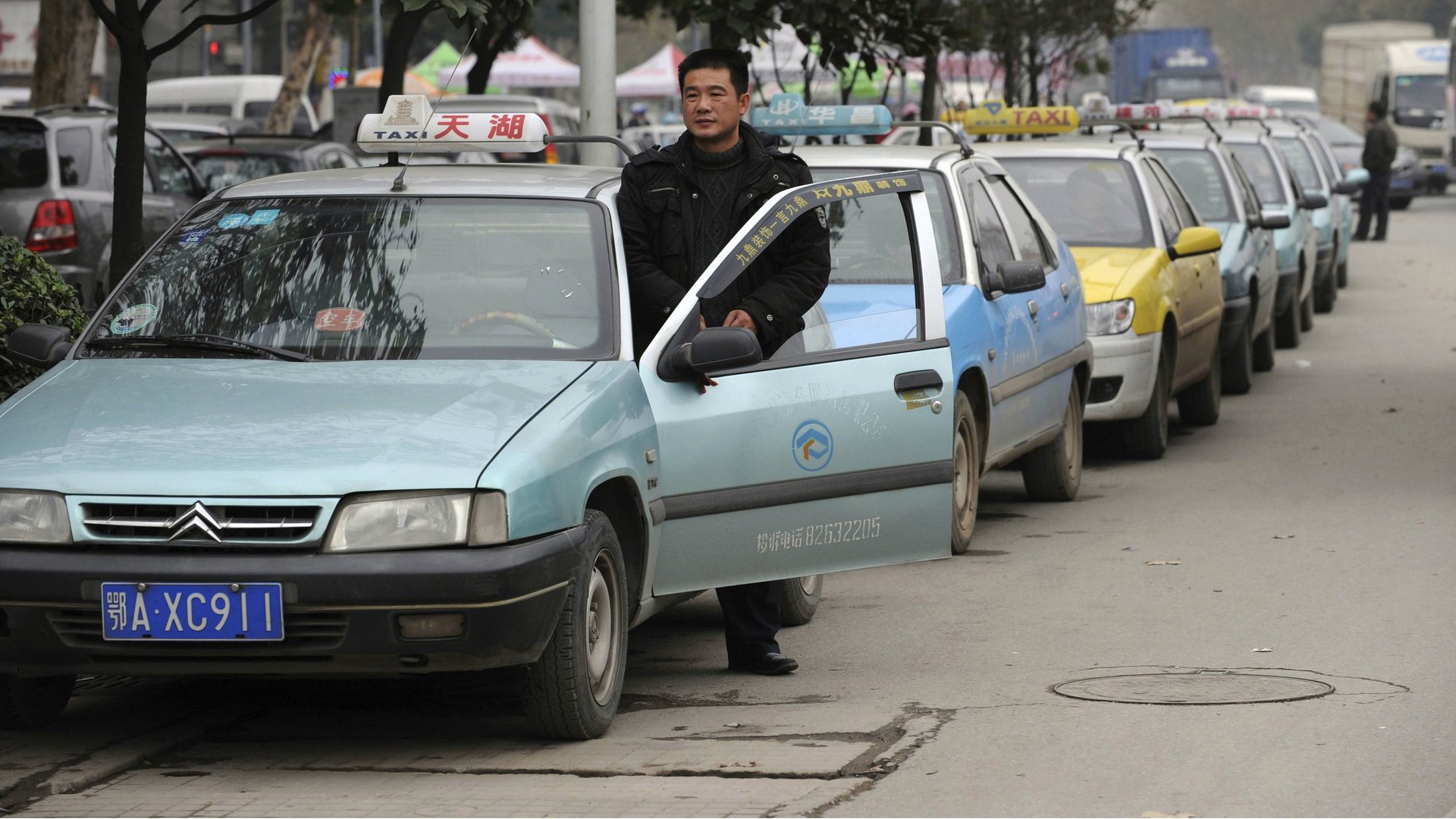A $100 million investment in Lyft is the latest step in the growing anti-Uber coalition
Lyft, the San Francisco ridesharing company, is far behind giant rival Uber when it comes to funding and popularity. But that’s not stopping it from receiving a massive influx of cash. Didi Kuaidi, the Beijing rid-sharing company that is Uber’s key competitor in China, said today it will invest $100 million in Lyft, in order to build a “global ridesharing alliance.”


Lyft, the San Francisco ridesharing company, is far behind giant rival Uber when it comes to funding and popularity. But that’s not stopping it from receiving a massive influx of cash. Didi Kuaidi, the Beijing rid-sharing company that is Uber’s key competitor in China, said today it will invest $100 million in Lyft, in order to build a “global ridesharing alliance.”
Didi Kuaidi’s $100 million investment in Lyft marks an anomaly in tech—it’s not common to see startups investing in other startups, nor is it especially common to see overseas startups investing in Silicon Valley startups. The funding is low compared to recently-announced investments in the industry, but it is a clear sign of a trend that should frighten Uber: ride-hailing startups from around the world are quietly starting to merge into a single entity designed to defeat Uber.
Active in over 60 countries, Uber has the largest global reach of any ridesharing app. But it is not necessarily the most dominant in any given country. Quality data on the industry remains scarce, since none of these companies are publicly listed. But looking at sheer availability shows what Uber is up against: in China, Uber is available in 15 cities, while Didi Kuaidi is available in over 300. In India, users can hail an Uber in 22 cities, but rival Ola is available in 88.
Unlike Uber, Didi Kuaidi, Ola, and Southeast Asia’s GrabTaxi built their network of vehicles off of traditional taxis. While that might make it more difficult to earn profits due to fixed prices, it provides the companies with an instant supply of vehicles, which helps grow a customer base quickly. It also doesn’t anger local taxi companies, or local governments, situations that are practically part of Uber’s business model.
Ola, Didi Kuaidi, GrabTaxi, and Lyft all share many common investors, including Alibaba, Softbank, and Coatue Management. Early on, these common bets appeared to indicate a shared thesis: in emerging markets, cabs-and-cash will trump Uber’s model of peer-to-peer ridesharing and credit card payments.
But now that Didi itself has invested in two of those startups (it backed GrabTaxi last month), and now that Uber’s rivals are branching out from taxis to private cars, consolidation among the anti-Uber crew looks more and more likely.
There’s even a merging of technology afoot—Lyft today said that opening the Lyft app inside China will soon allow customers to hail a ride from Didi’s network.
Consolidation could bring short-term benefits like reduced back office costs, as well as shared engineering, and more technology crossovers. For investors, it means they may own a stake in an even bigger entity than what they originally invested in.
The ringleader in this global consolidation trend is clearly Didi, and it will be a serious competitor to Uber. Not only has Didi invested in GrabTaxi and Lyft, it has also received funding from China Investment Corporation, the country’s sovereign wealth fund (the CIC also invested in GrabTaxi). The CIC’s involvement in the global ride-hailing wars indicates that the Chinese government itself wants an ownership stake in the next wave of urban transportation—which could extend to global logistics and self-driving cars. Uber’s ultimate competitor might not be a Chinese company, but the Chinese government.